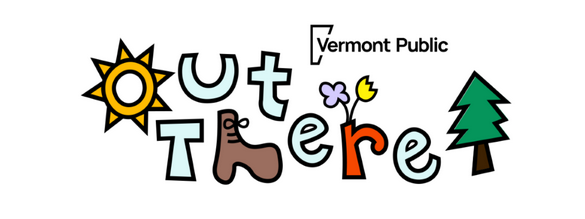🌑 It’s Friday, March 28. Here’s what’s on deck:
- Yet another eclipse!
- Trump cuts hit farmers
- Whale pee
But first,
The merits of mud season

Every year, sheep farmers cut the wool off their animals before lambing begins. It keeps animals comfortable and makes for cleaner births. As a sheep-loving friend told me, “It’s a signal of spring for shepherds … it marks the beginning of a new cycle.”
It’s a chance for farmers to check on the health of their sheep. And when shearing is done, they get a gorgeous fleece. Another bonus: there’s a natural oil on sheep’s wool called lanolin, which helps keep sheep dry in the rain and is a great moisturizer.
If you’ve got the mud season blues and don’t have any sheep in your life, here are some other ideas for enjoying this time of year between snow and green up:
🌷 Surround yourself with flowers: Some farmers grow tulips year round, “forcing” them to flower early. At a flower farm in Bristol, bulbs are planted in a crate and kept cool before moving to a warmer, light-filled space to mimic spring. Now their flowers planted in an outdoor greenhouse are about to bloom as well. You can pick up Vermont-grown tulips at local markets, through flower CSAs or on-site farm stands.
🍁 Make syrup: “There’s a lot of romance associated with it,” some sugarers say – along with hard work, frustration, and soggy boots. If you have maple trees on your property, you can tap trees and boil the sap at home, no evaporator needed. Or, head to the Vermont Maple Festival in St. Albans at the end of April for tastings, sugar house tours, a parade and more.
🌱 Start seeds inside: Most seeds need 4-8 weeks of indoor growing, but check the seed packet to be sure. It's better to start a little late than early so your plants don't get overgrown and leggy (growing too fast and tall). Vermont’s last frost date is usually in mid-May, depending on where you live, so now is the time!
In other news
🥕🎒 Federal cuts target farm-to-school programs: The USDA canceled $1.7 million in grants to help Vermont farmers get their produce and meat to schools and organizations that serve low-income families. Every school district in the state received free local food through the program. A new program to provide local food in child care centers set to launch this year was also canceled.
🐳 The biggest way whales transport nutrients to the tropics? Their pee. That’s according to new research from the University of Vermont that looked at how whales move thousands of tons of nitrogen across oceans during their long migrations – nutrients that are limited in tropical waters. The animals also transport nutrients through their placentas (weighing several hundred pounds) and carcasses.
🎣 Anglers blast proposal to ban sale of certain species: The fish in question are a type of panfish called crappies, also known as speckled bass or silver perch. They’re relatively expensive and account for just 4% of sales. State biologists say the problem isn’t the health of the population, but law enforcement. Commercial fishers say that’s not enough reason for a ban.
Get out there
🌅 Watch the partial solar eclipse: During sunrise Saturday morning (tomorrow, March 29), the moon will pass between Earth and the sun, casting a shadow. Only a portion of the sun will be blocked — upwards of 50% depending on where you are in the state. The eclipse will last from sunrise until a few minutes after 7 a.m. And a reminder, you can’t look directly at the sun, so dig out your eclipse glasses, make a DIY pinhole projector, or use a colander to see the show in the sky.
🌳 Buy native trees: Conservation districts across the state are selling fruit trees, shrubs, and in some places, trout. Deadlines to place your order vary, but the earliest is April 1. The sales take place every spring and raise money for conservation and education programs around the state.
📖 Daily observations from a Vermont hillside: That’s the premise of a new book from naturalist and former zoologist Ted Levin, who will be at the Norwich Bookstore Tuesday, April 8 at 7 p.m. to discussing his creative process.
Credits: This week’s edition was put together by Lexi Krupp with lots of help from the Vermont Public team, including graphics by Laura Nakasaka and digital support from Sophie Stephens. Editing by April McCullum.





